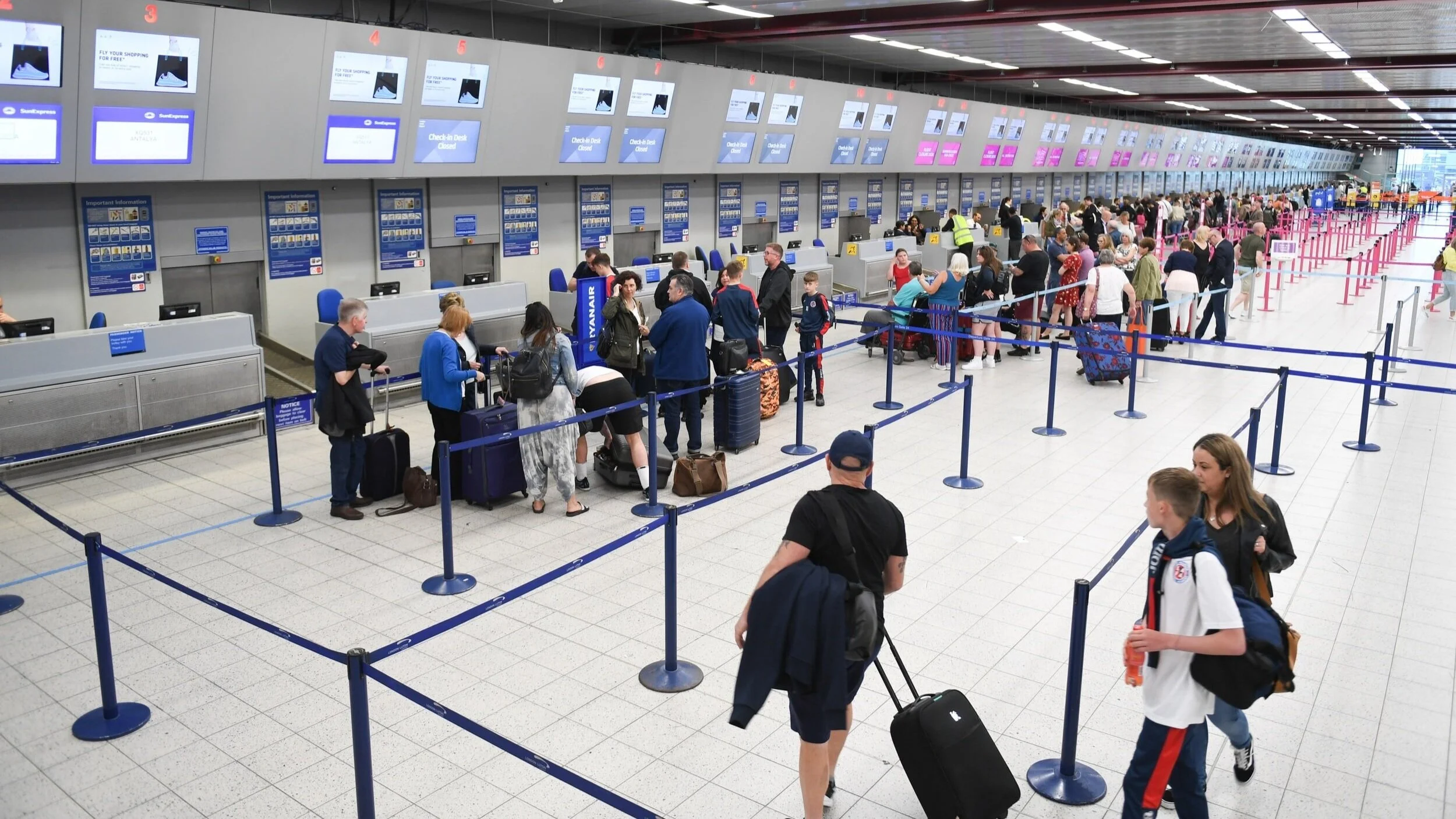What Will Travel Look Like In 2021?
Many of us are desperate to travel overseas having missed out on holidays in 2020. Yet the prospect of travel in 2021 presents us with more uncertainty.
To simply plan a holiday requires assessing and making predictions based on the COVID situation. Also, if you are planning on traveling to and from the UK there are new regulations to consider post-Brexit.
To help you make an informed decision on when, where or whether to book, this article provides a simple overview of the 2021 travel situation.
Changes for UK Citizens Post-Brexit
Be aware that the new rules for UK citizens travelling in Europe only apply within the Schengen area.
The Schengen area covers 26 countries without border controls between them. These countries are: Austria, Belgium, the Czech Republic, Denmark, Estonia, Finland, France, Germany, Greece, Hungary, Iceland, Italy, Latvia, Liechtenstein, Lithuania, Luxembourg, Malta, the Netherlands, Norway, Poland, Portugal, Slovakia, Slovenia, Spain, Sweden and Switzerland.
Different rules apply in Bulgaria, Croatia, Cyprus and Romania.
Passports
You don’t need to replace your passport. If your UK passport says ‘European Union’ on the cover you can still use it, it just loses all of its EU powers. The only requirement is that your passport is valid for at least three months beyond your date of departure.
Tougher Border Checks
Before Brexit, border officials only checked to see if your passport was up to date and belonged to you. However, now they may ask for the purpose of your visit, where you plan to travel, how long you plan to stay and if you have sufficient funds.
Health
European Health Insurance Cards can continue to be used until the expiry date on your card, guaranteeing access to free medical treatment to UK citizens in the EU.
The EHIC will soon be replaced by a GHIC (global) card which will cover you for health treatment not just within the EU but also in countries where there are UK agreements in place, such as Australia.
Driving
You don’t need an International Driving Permit (IDP) to drive in the EU , Switzerland, Norway, Iceland or Liechtenstein if you have a photocard driving licence issued in the UK.
The main changes are regarding motor insurance. You will now need to carry a physical, paper copy of a ‘Green Card’ (which provides a multilingual translation of your car insurance) when driving abroad. Contact your insurance provider at least six weeks before your trip to obtain this.
Mobile Phone Charges
Sadly, UK citizens no longer benefit from the EU ban on roaming charges. Although the big phone providers have suggested they will not reintroduce these charges, they are now allowed to do so if they wish.
Some phone companies have said that they will now charge extra to those customers who spend half their time overseas. This means that retired people sending the winter months abroad or those with holiday homes wanting to use their 90 in 180 days allowance will be charged more for their UK mobile phones.
Pets
Pet passports which entitled the owner to easily take their dog or cat into the EU are no longer valid.
Pet owners must now obtain an EU Animal Health Certificate, for which the animal must be micro-chipped. At least 3 weeks before travelling your pet must have a rabies vaccination and dogs must be given a tapeworm treatment between one to five days before entering the EU. These details will be recorded on the health certificate.
How much time can UK residents can spend in the EU?
One of the biggest setbacks of Brexit is that the amount of time you can spend in Europe is now vastly reduced. Without residency or visas, even those who own EU homes will only be allowed to spend 90 days (about three months) in any 180 (six months) in the Schengen area.
Once you have spent a total of 90 days in 180, you are not be allowed to visit any EU country for the following three months. For example, if you spent three months in Spain from December you won’t be allowed to re-enter any country in the EU until June.
However, the 90 day rule does not apply in Bulgaria, Croatia, Cyprus and Romania. You can visit these countries without it counting towards your 90-day total.
Is this the end of living in Europe part-time?
Thankfully, it is still possible to spend longer in your favourite Schengen area country although it will mean applying for a visa.
These are reasonably priced but require you to prove you have medical insurance and sufficient funds to support yourself while you are there.
France has a one-year visa which costs €99. In addition to the above, you’ll also need to provide evidence of your accommodation.
Spain has a long-stay visa priced €60 which requires both health insurance and a medical certificate, proof you haven’t broken the law in the past 5 years and at least £2000 per month for your intended stay.
The situation in Italy is somewhat different. Whereas in France and Spain you can arrange a long-stay visa without applying for residency, in Italy, it is not possible to apply for one without the other. With an Italian long-stay visa, you can enter Italy, but you must get your Italian residence permit, to authorize staying for more than 90 days.
How Brexit affects travelers planning to visit the UK
At the moment, EU citizens can visit the UK with national ID cards. But from 1 October 2021, you must show a valid passport and travel documents covering the dates of your trip. Your passport should be valid for the whole of your stay in the UK. Under the new system, if you’re an EU, EEA or Swiss citizen, you can visit the UK without applying for a visa and in most cases, will be able to stay for up to six months.
Nothing has changed for non-EU/EEA visitors following the end of the Brexit transition period.
How COVID-19 is affecting travel as 2021 begins
The most significant factor shedding doubt on our travel plans is COVID-19.
For the moment, UK citizens are not permitted to leave the country except for work or for those with residency outside the UK to return to their homes.
The majority of the EU is also under lockdown restrictions. The EU uses a traffic light map as a guideline to the high risk countries (signalled in red) from which travel should be limited. At the moment the only green, (safe and unrestricted ) area in Europe is a small section of Greece.
The following section examines how the variables of COVID are shaping up. This should help you to predict if a booking for summer 2021 is likely to come to fruition.
Why we can’t rely on the ‘R’ rate as a predictive measure
The R rate, which gives a measure of how quickly the virus is spreading, is used by many countries to enforce restrictions. Last year, we saw how the R rate affected whether a country remained on ‘safe to travel’ lists. However, now that we have lived through repeated waves of the virus, we know that even if your preferred destination has a low R rate now this doesn’t mean it will remain low in the months ahead.
How will vaccination programmes affect travel in 2021?
The beginning of COVID-19 vaccination programmes have provided us with our first real glimmer of hope. As the Pfizer vaccine seems to also protect people from new strains, we hope that a return to activities like travel might not be too far away.
Here are answers to the important questions on COVID vaccines and travel
What percentage of the population needs to be vaccinated before things improve?
When so many people are vaccinated that the virus struggles to find people to infect, COVID will no longer pose such a threat. This is what is known as achieving ‘herd immunity.’
The number of people needing to be vaccinated to achieve herd immunity depends on how infectious the virus is. As some strains of COVID-19 (such as the UK and South African) are reportedly more contagious, this could mean the ‘critical vaccination level’ will need to be higher.
The higher the critical vaccination level, the longer it will take to achieve.
Will COVID vaccination passports be available for travel?
There is speculation that a document will be available to those vaccinated which will enable them to travel. However, scientists are not yet certain whether the vaccine only prevents COVID symptoms. It is possible that, like the flu vaccines, those vaccinated will still carry the virus. In this case, being vaccinated wouldn’t mean you posed no COVID threat.
Will being vaccinated prevent me from spreading the virus?
It is expected that this information will be available from clinical trials soon. However, this article from a researcher at Cambridge University gives us cause to feel positive.
It explains why the vaccine will help defeat COVID even if it doesn’t stop us from carrying the virus. Briefly, this is because carriers with no symptoms transmit less of the virus. Therefore, ‘vaccinated people are less likely to transmit enough virus to cause severe disease.’ So, even if the vaccine doesn’t prevent us from carrying the virus, it will help prevent those we infect from becoming seriously ill.
How COVID will continue to affect travellers
Although the ongoing vaccination programmes will eventually help defeat the virus, herd immunity won’t be achieved quickly. Unless the vaccine proves to prevent us from carrying the virus, those who have been vaccinated won’t be granted exemption from restrictions or other preventive measures.
COVID travel protection measures, (such as testing before flying and/or a requirement to quarantine) are likely to be present for most of 2021, as will wearing masks and social distancing.
The return to travel and holidays as we knew them is still a long way off.
Tips should you decide to book
Restrictions around international travel in 2021 are likely to be constantly changing. However, if you are eager to book try these tips to improve the chance of an exchange or refund.
The best way to protect yourself from losing money on your 2021 holiday is to book a package through an ATOL protected company which means you will get a full refund within 14 days.
Be aware that your entitlement to a refund depends on whether or not your operator actually cancelled the booking. If they cancelled, you are eligible for a refund. If your plans change and you can no longer travel, most companies don’t have to offer an exchange or reimburse you.
As a result, airlines such as British Airways and Easyjet have started to offer flexible holiday bookings should you need to change your plans. Although you must inform them of changes 3 to 4 weeks before departure, this should make a booking, (if not confidence-inspiring) somewhat less risky.
Contributed to the Sanctifly Travel Wellness blog by Caroline James, journalist and editor of Immigration News UK





